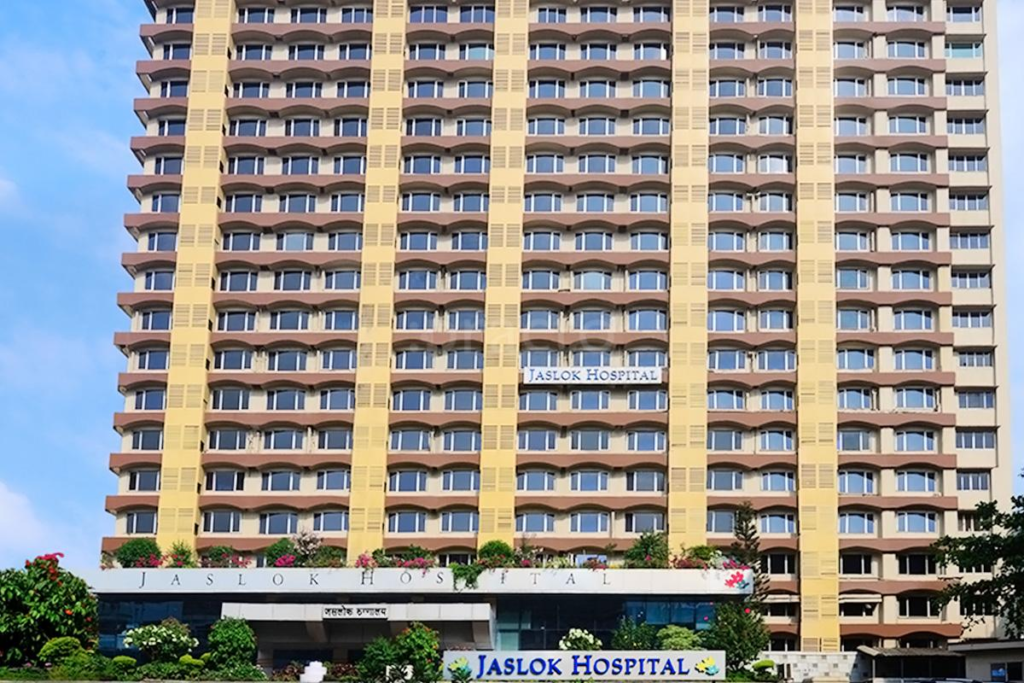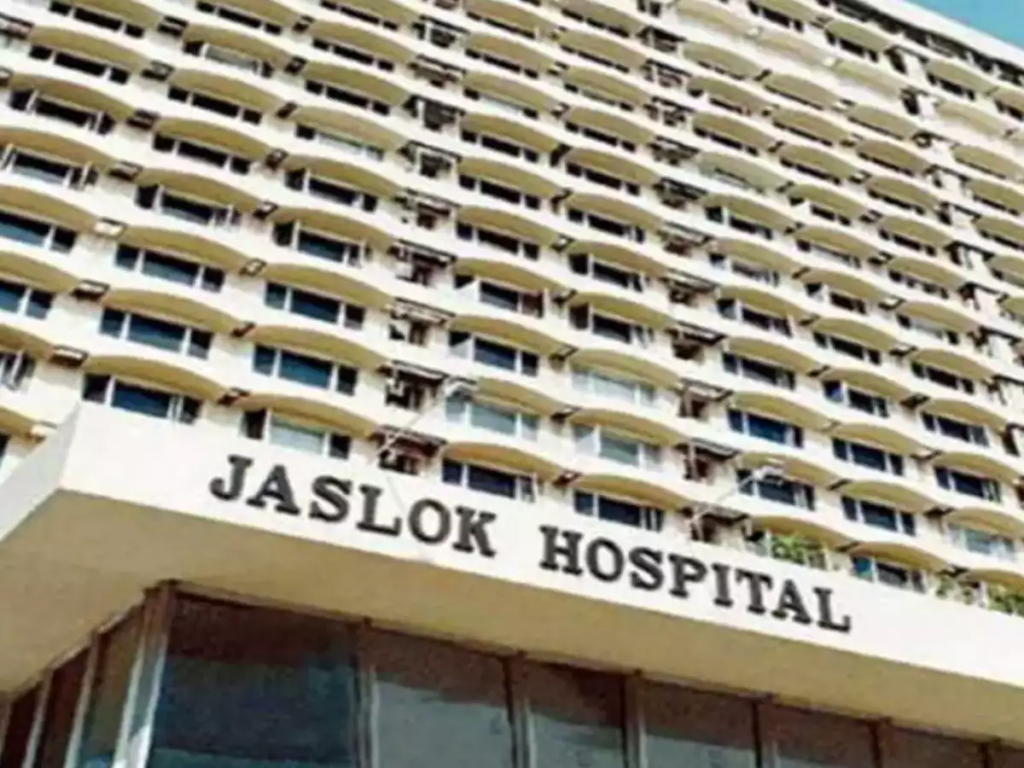Jaslok Hospital & Research Centre has achieved a groundbreaking milestone in the field of organ transplantation by successfully performing India’s first kidney transplant for a patient with the rare ‘Bombay’ blood group, also known as the HH blood group.
This historic medical feat not only highlights the hospital’s expertise in complex transplant procedures but also sheds light on the significant challenges faced by patients with this rare blood type when in need of a compatible organ donor.
The procedure, which required meticulous planning and innovative treatment strategies, has given a new lease on life to a 30-year-old woman from Shirdi who had been battling kidney failure due to diabetes since 2022.
The Rarity of the ‘Bombay’ Blood Group and Its Transplantation Challenges
The ‘Bombay’ blood group, scientifically known as the HH blood group, is an extremely rare condition, found in approximately 1 in 10,000 individuals in India and just 1 in a million worldwide.
This blood group is unique because it lacks the H antigen, which is present in all other blood groups, including O-negative. Due to this deficiency, individuals with the HH blood group can only receive blood and organs from other HH group donors, making organ transplants extraordinarily difficult.
The recipient of this remarkable transplant, Pooja, had been suffering from kidney failure due to diabetes and was undergoing treatment in another hospital before being referred to Jaslok Hospital.
Initially, her blood reports incorrectly classified her as an O blood group, which could have led to life-threatening complications had the error not been identified. It was only at Jaslok Hospital that her blood type was accurately diagnosed as the Bombay blood group, ensuring that a compatible transplant could be carefully planned.
Read : New Blood Group System Discovered by Scientists: Solved 50-Year Mystery
Finding a suitable donor for patients with the HH blood group is an enormous challenge, as the pool of compatible donors is minuscule. In Pooja’s case, her mother, despite having a B positive blood group, stepped forward as a donor.
Read : From Pandemics to Silent Killers: Ranking the World’s top 10 Deadliest Diseases
The medical team at Jaslok Hospital devised a customised desensitisation protocol to minimise the risk of organ rejection and meticulously monitored antibody levels to ensure the procedure’s success.
The Meticulously Planned Transplant Procedure
Given the complexity of this transplant, a multidisciplinary team of highly skilled specialists was assembled to oversee the entire process. The transplant team included nephrologists, urologists, anesthetists, blood bank officers, and transplant coordinators, all working in perfect synergy to ensure a successful outcome.
The core team members included Nephrologists Dr. Rushi Deshpande and Dr. Ashwin Patil; Urologists Dr. A. A. Raval and Dr. J. G. Lalmalani; Anaesthetists Dr. Dipankar Dasgupta and Dr. Savi Shah; Blood Bank officers Dr. Asha and Dr. Tejaswini; and Transplant Coordinators Ruchita, Nilesh, Pradnya, and Sheetal. Their collective expertise and dedication were instrumental in overcoming the numerous challenges posed by this rare case.
To prepare for the transplant, the medical team employed several advanced techniques, including extensive antibody screening, plasma exchange, and close monitoring of ‘Anti-H’ antibody levels.
The Jaslok Hospital blood bank also played a crucial role in procuring rare HH blood products from across the state to ensure the patient’s safety during and after the surgery.

Dr. Rushi Deshpande, Director of Nephrology (Academics) at Jaslok Hospital, highlighted the unprecedented nature of this case, stating, “Performing this transplant was an enormous challenge, as no similar cases have been reported worldwide to the best of my knowledge. The correct blood group diagnosis at Jaslok was crucial—without it, the transplant could have ended in catastrophe. The expertise of our team, along with Jaslok’s cutting-edge infrastructure, played a vital role in ensuring success.”
Dr. Milind Khadke, Medical Director at Jaslok Hospital, also emphasised the complexity of the case, noting, “Jaslok Hospital is a pioneer in ABO-incompatible renal transplants, but performing a transplant with a ‘Bombay’ blood group recipient required exceptional precision and a specialised desensitisation protocol.”
Dr. Ashwin Patil, Consultant Nephrologist, elaborated on the intricacies of the procedure, explaining, “While we routinely monitor ABO titres and perform plasma exchange in incompatible transplants, this case required additional monitoring of ‘Anti-H’ antibody titres, making it significantly more complex.”
Pooja’s Recovery and the Future of Transplants for Rare Blood Groups
Following the successful transplant, Pooja’s recovery has been progressing well, with her body responding positively to the new kidney. She expressed immense gratitude to the medical team at Jaslok Hospital, stating, “Dr. Deshpande, his team, and everyone at Jaslok Hospital cared for me like family. I had lost hope, but today, I have a new lease on life thanks to their efforts.”
The success of this procedure has opened new doors in the field of organ transplantation, demonstrating that with precise planning, state-of-the-art medical infrastructure, and a team of dedicated experts, even the most complex transplants can be successfully performed. Jaslok Hospital’s achievement serves as a beacon of hope for other patients with the Bombay blood group who are in need of life-saving organ transplants.

Looking ahead, medical professionals are hopeful that increased awareness and advancements in transplantation medicine will lead to better donor registries for rare blood groups. More targeted blood screening programs and the establishment of dedicated HH blood banks could significantly improve the chances of finding compatible donors for future transplant cases.
The role of technology and innovative medical research in enhancing compatibility solutions and reducing rejection risks is also expected to play a crucial role in the evolution of transplant medicine.
Jaslok Hospital’s pioneering work in this domain has not only set a new benchmark in the medical community but has also provided hope to countless individuals struggling with rare medical conditions.
As awareness spreads and more healthcare institutions gear up to handle such complex cases, the future of organ transplantation for rare blood groups looks increasingly promising.

